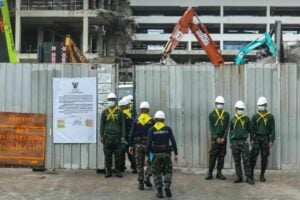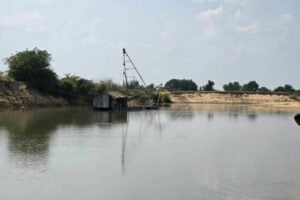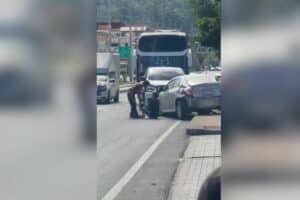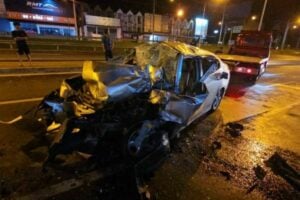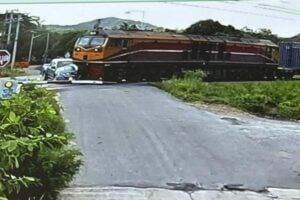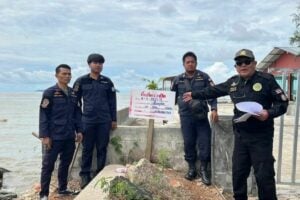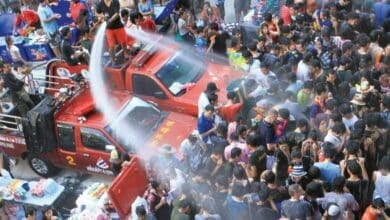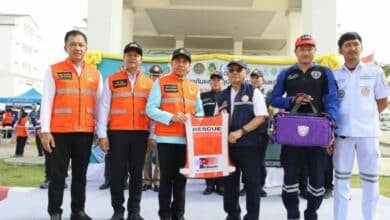Types of illegal vehicles and how to report them in Thailand
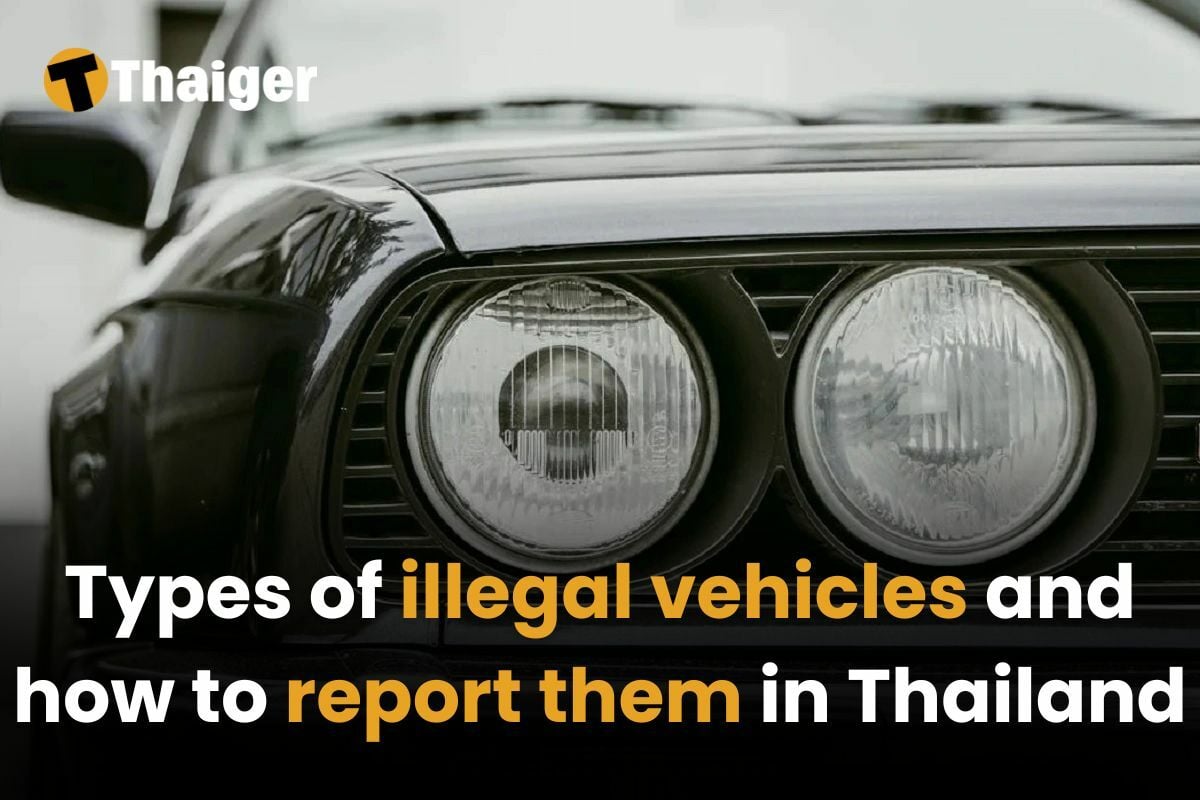
Illegal vehicles extend beyond those lacking proper approvals. They also encompass vehicles modified to bypass emission control systems, such as diesel particulate filters and catalytic converters, adversely affecting air quality and public health.
Reporting these vehicles is crucial in addressing this issue. Despite facing procedural challenges and suspensions, the ability to identify and report illegal activities is imperative. By staying informed, you help contribute to a safer road in Thailand.
Types of illegal vehicles
Here are some of the illegal cars that you might encounter on the road:
| Type of Vehicle | Description | Potential Risks | Legal Consequences |
|---|---|---|---|
| Unregistered | No official registration/license plates | Hard to trace, increased crime risk | Fines, confiscation, charges |
| Modified | Altered beyond manufacturer specs | Unsafe operation, accidents | Fines, seizure |
| Vehicles that are not ready for use | Damaged, incomplete, or unfit for roads | Mechanical failures, accidents | Prohibition from road use, fines |
| No Insurance | No third-party insurance | Lack of compensation in accidents | Fines, legal action |
1. Unregistered vehicles

Unregistered vehicles are those that do not possess the necessary registration or display valid license plates issued by the Thai Department of Land Transport (DLT). These vehicles have either bypassed the legal registration process or may have expired registrations that have not been renewed. Unregistered vehicles can range from privately owned cars and motorcycles to commercial vehicles like trucks or vans that operate without proper documentation.
The registration process in Thailand requires vehicle owners to submit identification, vehicle specifications, proof of insurance, and pay associated fees to obtain license plates and registration documentation. This process ensures that all vehicles are accounted for within a national database, facilitating easier monitoring and control. Vehicles without these necessary legal credentials are deemed unregistered and unauthorised for use on public roads.
Why unregistered vehicles are a problem.
Unregistered vehicles present multiple challenges and risks that affect public safety and law enforcement:
- Difficulty in ownership tracing: In the event of an accident, hit-and-run, or criminal activity involving an unregistered vehicle, law enforcement faces significant challenges in identifying and locating the owner. Without a valid registration plate, these vehicles effectively become untraceable.
- Increased potential for crime: Unregistered vehicles are often used in criminal activities due to their anonymity. Criminals may use these vehicles to avoid identification, as they cannot be traced back through official records. This is particularly problematic in cases involving theft, smuggling, or even serious crimes like kidnappings.
- Insurance and compensation issues: Vehicles in Thailand are required to have third-party insurance, which provides financial protection for damages to other parties in the event of an accident. Unregistered vehicles often lack any form of insurance coverage. This can leave victims of accidents without adequate compensation, forcing them to bear the financial and emotional burden themselves.
2. Illegally modified vehicles

Modified vehicles refer to those that have been altered from their original manufacturer specifications without proper approval from the Department of Land Transport (DLT) in Thailand. Modifications can range from aesthetic changes, such as body kits and custom paint jobs, to substantial mechanical alterations that impact a vehicle’s performance and safety, such as upgraded exhaust systems, engine enhancements, or changes to the suspension.
In Thailand, while some minor custom modifications are permitted if they adhere to the regulations, many changes require formal inspection and approval. Failure to obtain approval for these modifications makes the vehicle illegal and subject to various consequences. The law is clear: any alteration that changes the manufacturer’s specifications must meet the safety and environmental standards set by Thai authorities.
Why modified vehicles are problematic
The following issues illustrate why unauthorised vehicle modifications are problematic:
- Compromised safety standards: Alterations such as unauthorised turbo kits or oversized exhaust systems can dramatically change the dynamics and safety profile of a vehicle. For example, modifications to engine power can lead to higher speeds than the vehicle was designed to handle, increasing the risk of accidents due to reduced stability and control.
- Environmental impact: Modifications that bypass or remove catalytic converters or emissions controls can result in vehicles emitting higher levels of pollutants. This contributes to air pollution and breaches environmental regulations.
- Legal and insurance implications: Vehicles with unapproved modifications often do not meet the requirements for insurance policies, meaning they may not be covered in the event of an accident. This lack of coverage can lead to significant financial loss for the driver and leave victims without compensation.
3. Vehicles that are not ready for use

Vehicles that emit loud noises, unusual modifications, or visible black, white, blue, or grey smoke are often poorly maintained, with parts that have surpassed their service life. These cars can pose serious risks on the road due to neglect. Black smoke may indicate excessive fuel use from a clogged air filter or faulty fuel system; white smoke suggests incomplete combustion or a coolant leak, while blue or grey smoke signals oil burning, often due to worn engine parts. Such issues require immediate professional attention to ensure road safety.
4. Vehicles without insurance

Vehicles without insurance refer to cars, motorcycles, and other forms of transport that do not have the mandatory third-party liability insurance required by Thai law. This insurance, known as Por Ror Bor (Compulsory Motor Insurance), is designed to provide financial protection to third parties in the event of an accident, covering costs related to injury, death, or damage. While comprehensive insurance policies are optional, third-party liability insurance is non-negotiable for all motor vehicles on the road.
Despite this mandate, a significant number of vehicles still operate without the required insurance, creating challenges for both the individuals involved in accidents and the broader enforcement landscape.
Why vehicles without insurance are a problem
Here are the key issues associated with uninsured vehicles:
- Financial and legal burden on accident victims: In the unfortunate event of an accident involving an uninsured vehicle, victims may face severe financial difficulties. Without insurance, there is no guarantee of compensation for medical bills, property damage, or other expenses incurred as a result of the accident.
- Increased pressure on legal and medical systems: The lack of insurance coverage means that victims often turn to public medical facilities or seek government support, increasing the burden on state resources. This can lead to overcrowding in public hospitals and delays in the treatment of accident victims.
- Irresponsibility and road safety concerns: Uninsured drivers may be more inclined to engage in reckless driving behaviour due to their lack of financial protection. This disregard for road safety can lead to higher accident rates and increased risks for other drivers and pedestrians.
How to report illegal vehicles
If you come across a car that violates the law, such as one without a license plate, improperly modified, or not in a roadworthy condition, it’s essential to report the incident to the relevant authorities. By providing specific details, you can help maintain safety on Thailand’s roads. Here’s how to proceed.
When reporting an incident, make sure to include the location and time of the incident, specifying exactly where and when it took place. Describe the nature of the offence, such as missing license plates or unsafe vehicle modifications. Provide as many details about the vehicle as possible, including the license plate number if available. Additionally, attaching any evidence, such as photos or video clips, can greatly assist in documenting the violation effectively.
Agencies to Notify:
| Agency | Type of violations to report |
|---|---|
| Department of Land Transport | Vehicle registration issues, illegal driving, vehicles without license plates, vehicles not passing inspection |
| Traffic Police | Traffic law violations, dangerous vehicle modifications |
Reporting the Illegal Vehicles:
You can also report to the Department of Land Transport (DLT) through these online resources:
- Hotline 1584: For quick reporting of illegal transport and travel issues.
- LINE: @1584DLT
- E-mail: dlt_1584complain@hotmail.com
- Website: ins.dlt.go.th/cmpweb
You can also make a report to the Thai police services such as the Royal Thai Police (Phone no. 191 for the emergency number) or the Traffic Police (Phone no. 1193). You could also find them too on the road if you need to report, keep in mind that although they might understand English, it is possible that there will be a language barrier.
By familiarising yourself with the types of illegal vehicles and knowing how to report them, you contribute to a safer and more sustainable community. Your efforts in reporting not only help in regulatory enforcement but also support public health and economic stability. Use the available resources and tools to report illegal vehicles effectively, ensuring your confidentiality and aiding authorities in their investigations. Your proactive involvement is vital in driving necessary changes and maintaining the safety and integrity of our roads.
FAQs about illegal car types and how to report them
How can I identify a modified vehicle?
Look for non-standard body kits, large exhaust pipes, or excessive noise. Unauthorised engine modifications may result in unusual sounds or increased emissions.
Are modified motorcycles also considered illegal?
Yes, any vehicle, including motorcycles, with unauthorised modifications can be considered illegal and subject to fines or seizure.
Can I remain anonymous when reporting?
Yes, reports can often be made anonymously, especially when using online forms.
How can I report an illegal vehicle in Thailand?
You can report illegal vehicles to the Department of Land Transport via:
Hotline 1584
LINE (@1584DLT)
Email at dlt_1584complain@hotmail.com
Website at ins.dlt.go.th/cmpweb
What should I do if I see a vehicle operating without insurance?
Report the uninsured vehicle to the Department of Land Transport or the Traffic Police, providing details such as location, time, and any available vehicle information.


